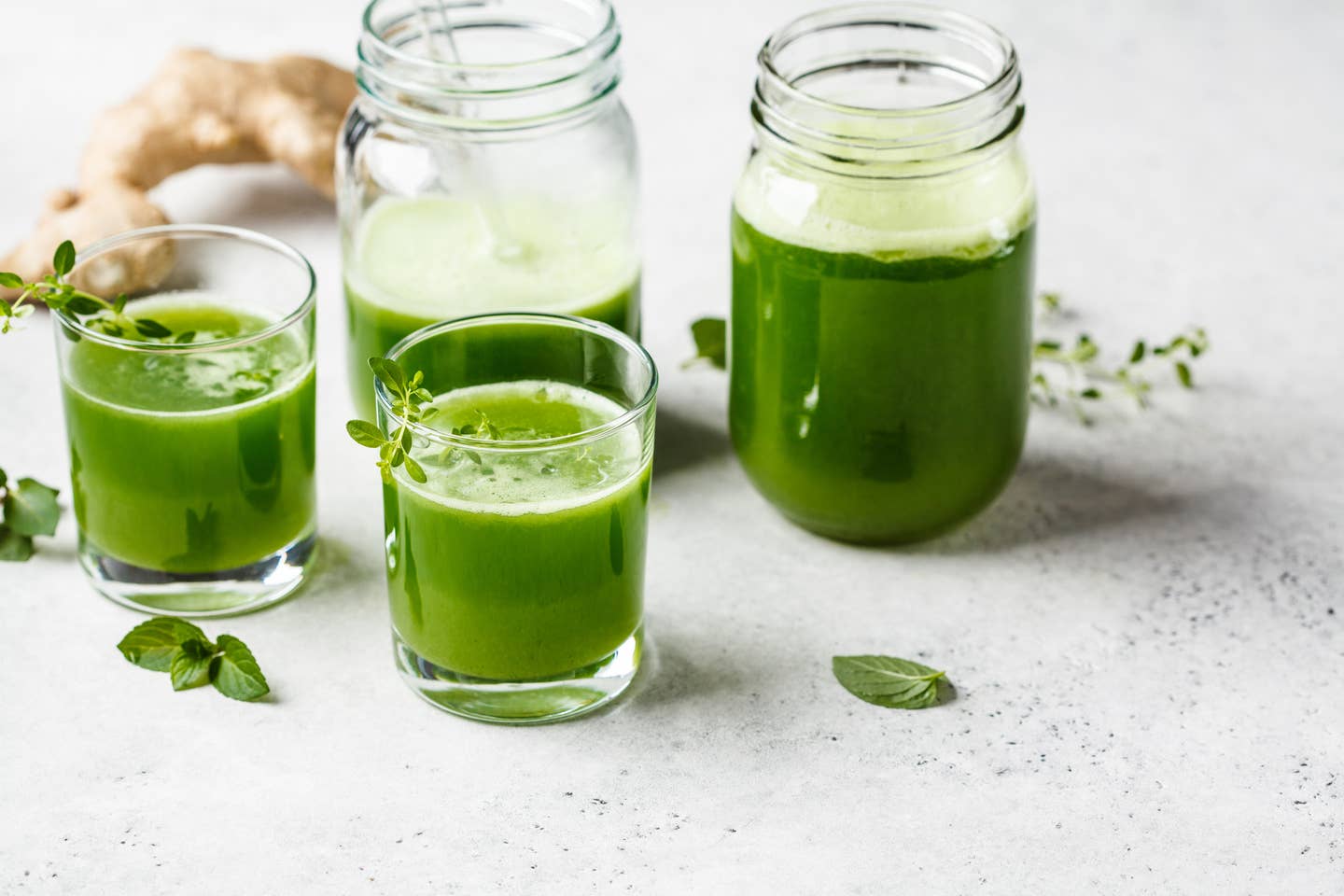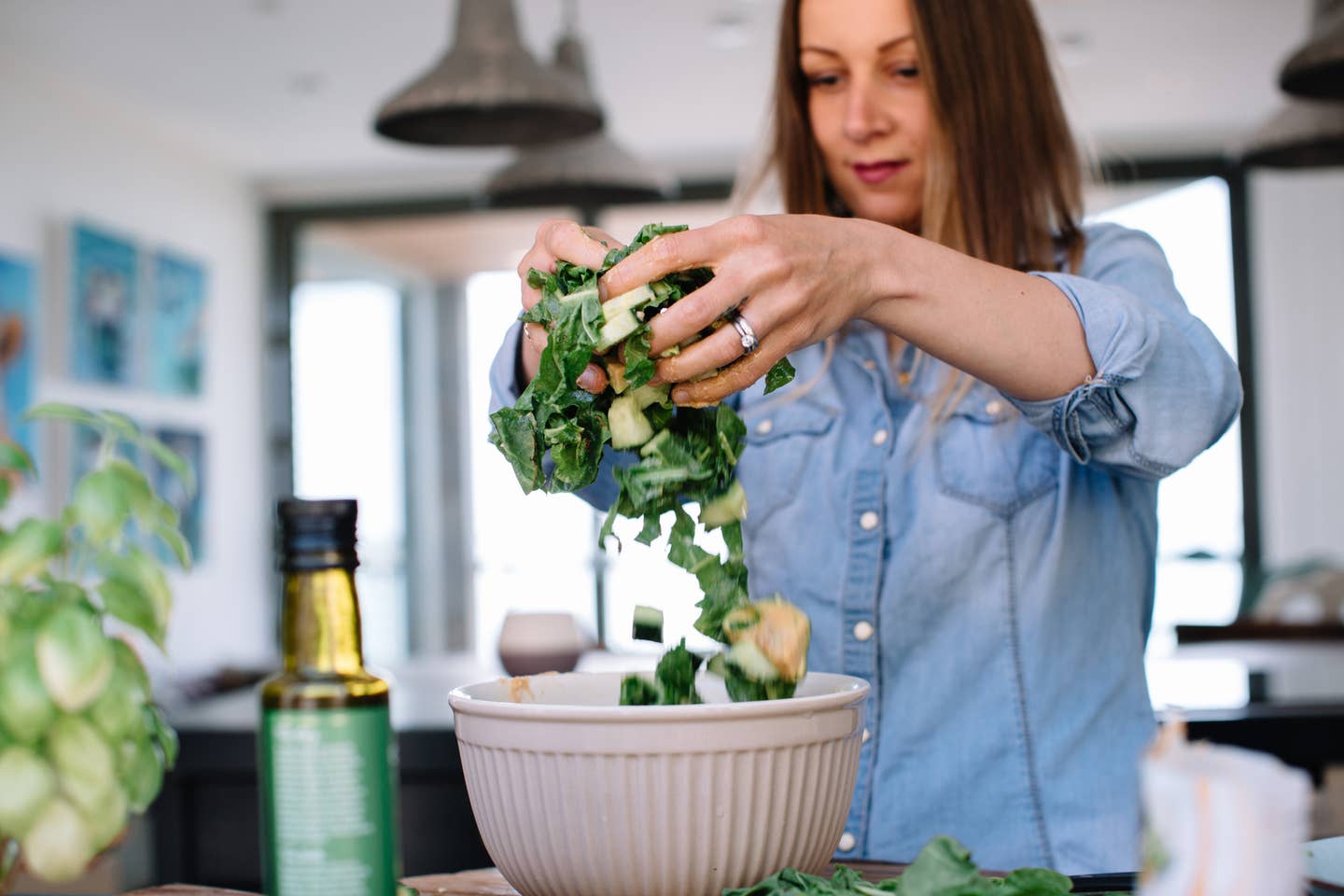
How Juicing One Meal a Day Helps Boost Immunity, Energy and Weight Loss
During quarantine, the documentary Fat, Sick and Nearly Dead piqued my interest in juicing and changed the way I eat breakfast forever. The film chronicles Australian Joe Cross' health journey as he road trips across the US drinking only green juice for 60 days, and we watch as he loses 82 pounds during the two months. Cross is advised to use juicing to lose weight and get healthy by Dr. Joel Fuhrman, bestselling author of Eat to Live, and we witness his transformation from overweight to healthful as he becomes a wellness guru who extolls the benefits of drinking your fruits and vegetables.
Juicing is Proven to Help with Weight Loss, Immunity, Health and Energy
Science backs up the notion that juicing promotes healthy weight loss: In one recent study, 20 people on a juice-based diet for three days "altered the intestinal microbiota associated with weight loss" and dropped weight by the fourth day. The polyphenols in the vegetables and fruit juices induce a prebiotic-like effect, shifting the gut microbiome and promoting the body's natural weight loss mechanism. By day four, they had all lost weight, but more importantly, they had improved their blood's lipid content and other vital health markers and boosted their "general well-being score."
Another study on the benefits of juicing touted its anti-inflammatory effects and indicated that daily juicing lowers the risk factors for major chronic diseases like heart disease and high blood pressure. Juicing with vegetables and fruits specifically lowered cardiovascular risk factors, such as blood pressure and blood lipid profile. All this, from one little juicer that you can buy for under $100 online.
My juicer may be the single healthiest thing I ever bought myself
Inspired by Cross' story and the science behind it, I dove into juicing headfirst: I didn't follow a specific recipe for these health elixirs, opting instead to experiment with different tastes and produce. From the grocery store, I bought beets, kale, celery, cucumbers, carrots, oranges, green apples, cilantro, lemons, and plenty of ginger root. Because I was already eating a vegan diet rich in fruits, vegetables, legumes, and whole grains, I decided that I would replace one meal per day with juice, and chose breakfast to be the meal I would drink instead of eat.
It's not just juicing that matters, but what you add to the juicer
For an additional immune benefit, I decided to add ginger, which contains antioxidants and anti-inflammatory compounds and has even been shown to benefit athletes in their training routines. A 2013 study found that ginger consumption reduces muscle pain during moderate-intensity cycling exercise. Additionally, I added citrus fruits like oranges and lemons, ramping up my vitamin C intake, which "contributes to the immune defense" one study found, supporting the function of "both the innate and adaptive immune system."
It doesn't matter what you add, so long as you don't add sugar or other sweeteners that can make your juice a calorie bomb. This recipe for Healthy and Refreshing Green Juice is a great place to start.
Choosing the right juicer for you
Let's talk about juicers. Most people think these kitchen appliances are super expensive, but that's a myth: My juicer is by Bella in at between $45 to $59 dollars, depending on which retailer you purchase it from. When I figure that one bottle of juice at an NYC juicery costs around $11 dollars, conservatively, this machine pays for itself in just four to five uses.
My Juicing Diary: I tried juicing for a week and here's what happened
The first morning, I decided to start with a blend of celery, beets, carrots and ginger. Despite the earthy taste of the beet, the juice was plenty sweet, thanks to the carrots, and the ginger offered a refreshing tangy note that made it easy to drink. After drinking it, I felt energetic and locked into my work for the day with a level of focus I didn't usually have: Normally, when working from home, I find I work best when I do several things at once, working on each in rotation. This day, I was able to laser in on one individual task at a time, which may be thanks to the beets, which have been proven to increase blood flow to the brain.
In the next few days, I experimented with different combinations of produce and tastes, some days making a citrus-heavy blend and some days opting for green juice. What I noticed when I chose juice for breakfast instead of my beloved everything bagel or toast was the dramatic increase in energy I had. Starting my day with a juice proved to be a sure-fire way to ensure I got everything on my to-do list checked off, and it also encouraged me to make other healthy choices during the rest of the day. I even took the liberty of replacing some of my dinners with an additional juice on days that I needed another boost of energy and focus. It's fun for me to try different mixes of flavors interesting to see what produce has which effects on my energy and focus levels.
Here are some of my favorite picks for juicing:
- Beets: Contain nitrates which help increase blood flow to the brain.
- Cilantro: Raises energy levels and helps clear skin.
- Cucumber: Contains antioxidants and the high water content promotes weight loss.
- Ginger: Improves digestion and boost the immune system.
- Carrots: Improves eye health and are rich with vitamins and minerals.
- Celery: Supports digestion and reduces inflammation.
- Green Apples: Contain pectin, which promotes good bacteria in your gut.
- Kale: Super nutrient-dense; contains high levels of Vitamin K, critical for clotting.
- Citrus Fruits: Filled with Vitamin C to support immunity.
After a week of drinking juice for breakfast, I'm sold: Not only is juicing delicious, but my body functions far better with this addition to my routine. I feel energized, focused, and all-around healthier, and am able to reap the nutritional benefits of many more fruits and vegetables than I would be able to eat on my own in a salad. If you feel lethargic, stuck in a rut, and uninspired by your current diet, give juicing a try. I found the produce required to make the juices was surprisingly affordable when I bought it in bulk and well worth it: Juicing for just one meal a day made such a mighty impact in my mood, energy and all-around wellbeing.
Get inspired to start your own juicing journey with this preview of Cross's documentary:
More From The Beet






